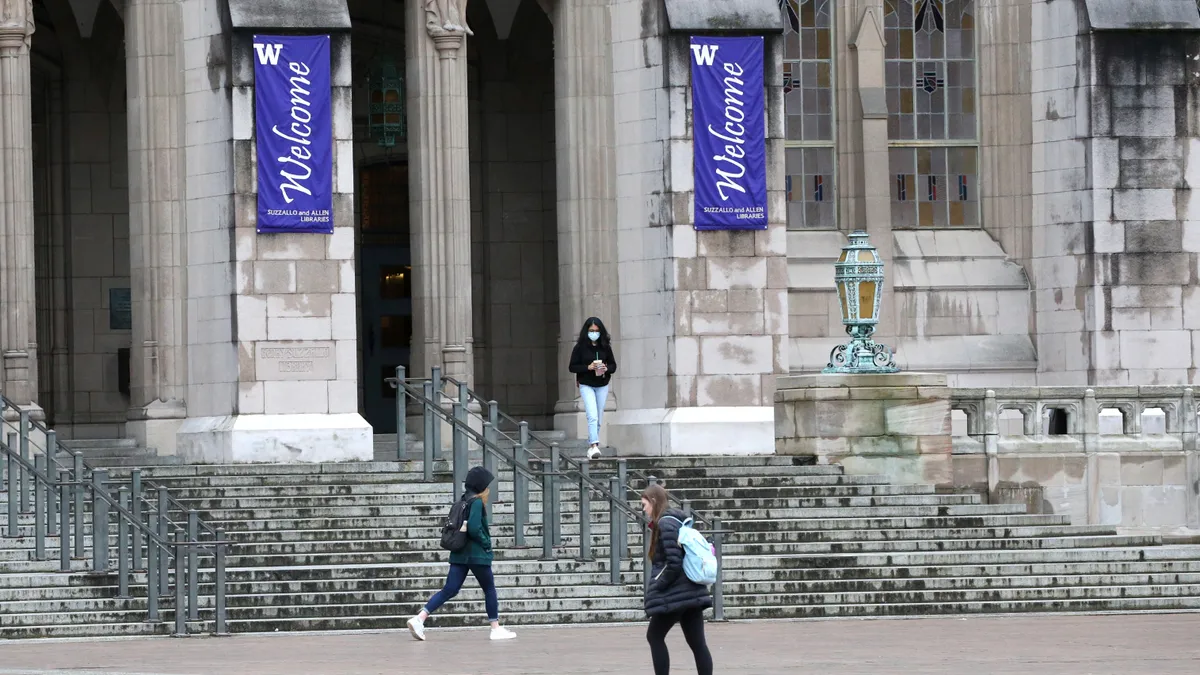Dive Brief:
-
Washington state's public four-year colleges are permanently switching to test-optional admissions, leaders of the institutions recently announced.
-
Students won't be penalized for not submitting SAT or ACT scores during admissions, and it will not affect their eligibility for institutional scholarships or their course placements, the colleges' top academic officials said in a letter.
-
The schools are some of the first colleges permanently becoming test-optional after piloting such policies during the pandemic.
Dive Insight:
Like many other colleges, Washington state universities dropped standardized testing requirements during the early months of the pandemic for students applying for entry in the 2021-22 academic year.
Officials at the schools said in their letter that they want to continue with a "holistic approach" to admissions. "[A]s we enter a period of post-COVID-19 recovery, we continue our commitment to learn from this historic challenge and embrace long-term changes that best serve our students and state," they wrote.
Advocates of test-optional policies argue that the SAT and the ACT are biased against low-income and racial minority students. They also note that many applicants don't have the means to pay for expensive test prep that helps affluent students. And one recent study has found that GPAs are a better predictor of college success.
Research into the impact of test-optional policies has been limited, but it has revealed that the policies can help colleges enroll more students from historically underrepresented groups. No longer requiring SAT or ACT scores at private colleges is linked with modest enrollment gains among students from underrepresented racial and ethnic groups, low-income students and women, an April study of 99 colleges found.
A similar analysis in 2018, which studied 28 schools that adopted test-optional policies, also found modest enrollment increases in underrepresented minority students. However, the schools had smaller growth in enrollment of students receiving the Pell Grant.
Hundreds of colleges nationwide waived standardized testing requirements temporarily due to limited testing availability during the health crisis. Experts believe some colleges will make these policies permanent.
The University of California, one of the largest higher education systems in the U.S., settled a lawsuit last week by agreeing not to use SAT and ACT scores in admissions decisions through 2025. Advocates for low-income and racial minority students sued the system in 2019, arguing that the tests were biased.
And other schools are extending their test-optional policies for several years, including the University of Kentucky, the University of Oklahoma and Seton Hall University, in New Jersey.
Yet not all colleges are embracing the movement. The University System of Georgia plans to require standardized test scores for applicants entering in spring 2022 after waiving such policies during the pandemic, it announced last week. And Florida's public colleges never dropped the requirement.















